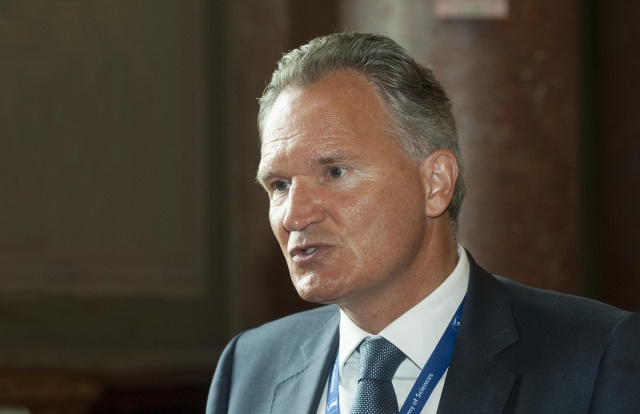Basic research is getting more and more appreciation - interview with the Director-General for Research and Innovation of the EU Commission
How do you see the EU13 countries faring within the EU R&D programmes? What do you think of basic research? Have the goals of the Horizon2020 programme been achieved? These were the questions we asked Robert-Jan Smits, Director-General for Research and Innovation of the EU Commission.
14 September, 2017
Regarding research opportunities, Europe is divided in two: the old EU15 members and the new EU13 members. What do you think policymakers can do to moderate these differences, and how can EU research funding programmes provide effective support for the less R&D-efficient countries?
I think we should not talk in terms of old EU15 member states and new EU13 member states; I think we cannot just compare countries and put them in different groups. We are all members of the European Union, and each country has its strengths and weaknesses. Indeed, there are a couple of countries which are not finding their place in the ERA and have difficulties in participating in our programmes. A couple of things are necessary to understand, the first of which is reforms in these countries. Because in these countries very often there is no allocation of money on competitive bases; they do not invest a lot in science and innovation, and there is no open recruitment in universities. From this point of view, reforms are necessary. The next important point is investment. National governments have to give priority to science and innovation. And if some of the countries only spend 0.1 percent of their GDP on science and innovation, you will never be able to build a sustainable economy.
 Robert-Jan Smits, Director-General for Research and Innovation of the EU Commission source: mta.hu / Tamás Szigeti
Robert-Jan Smits, Director-General for Research and Innovation of the EU Commission source: mta.hu / Tamás Szigeti Do you mean industrial investment is needed as well?
I think industry plays, of course, a very important role in the ecosystem of science and innovation. I mentioned earlier that in Sweden, for instance, 75% of all research is carried out by industry. That is what we want. Public money should leverage industry and boost industry, so that is very important. It is also crucial that public money is used to generate spin off universities.
The important role of basic science is evident for the researchers. But is it evident for the decision makers and politicians who are responsible for the financial decisions as well?
I noticed that more and more places are concerned about the importance of basic science, making the case as to why it is important and that it is something which is essential. Recently, an interesting book came out with an essay by Robbert Dijkgraaf, mathematical physicist (Abraham Flexner, The Usefulness of Useless Knowledge), which indicates very clearly how basic science has led to major breakthroughs and new technological developments which no one could have dreamed of, which can only come through basic science. When the laser was invented, for instance, people didn’t know what it could be used for. So it is important for basic science to make the case as to why their work is important; not for today, not for tomorrow, but for the day after tomorrow. I am a strong believer in basic science, but it is very important to continuously make the case as to why we need to invest in basic science. At the European level we have been doing this in the European Research Council for a long time, and we will continue with it, but every day is an uphill battle to convince politicians as to why this is necessary.
You have been leading the Research and Innovation DG since 2010, and were a member of Horizon2020 initiators. How efficient do you think the H2020 funding programmes are? Does the financial support reach the right places? The EU bureaucracy is usually criticised – the researchers still have to spend too much time with administration instead of focusing on science – how much can you change this situation?
Good question, but I am a bit biased on the subject, because I think it is the best science funding programme in the world. We have asked the participants, and the results were quite interesting. Eighty percent of the participants say that they couldn’t have done the research without H2020. So this shows the European added value of the programme. But what was also interesting was when I asked the participants if they know a programme for science and innovation at the national or European level which is simpler than H2020, and more than eighty percent said no. This means that our goals and procedures are sufficiently flexible and user-friendly. So it is a great programme, and please spread the word in Hungary that we still have 30 billion euros available to achieve the programme’s goals.
